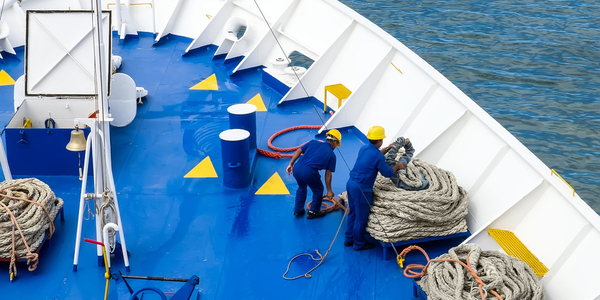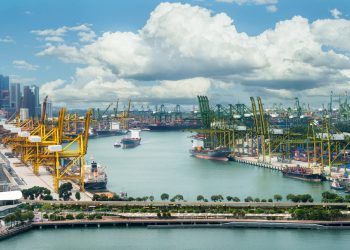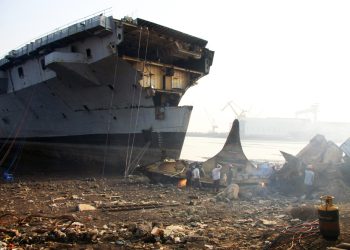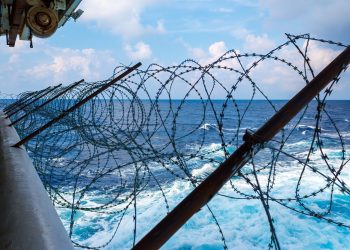The ILO urged ratifying states which have not yet done so, to adopt all necessary measures without delay to restore the protection of seafarers’ rights and comply to the fullest extent with their obligations under the MLC, 2006.
[smlsubform prepend=”GET THE SAFETY4SEA IN YOUR INBOX!” showname=false emailtxt=”” emailholder=”Enter your email address” showsubmit=true submittxt=”Submit” jsthanks=false thankyou=”Thank you for subscribing to our mailing list”]
The call is outlined in new ILO guidance, following its previous ruling in December 2020, that found governments had breached seafarers’ rights and failed to comply with several provisions of the MLC.
The Committee of Experts stressed that the notion of force majeure may no longer be invoked from the moment that options are available to comply with the provisions of the MLC, 2006, although more difficult or cumbersome.
Accordingly, it requested all ratifying States, in their various capacities as flag States, port States or labour-supplying States, to adopt the necessary measures or reinforce existing ones without delay to ensure that, “in no case, seafarers are forced to continue working on extended contractual arrangements without their formal, free and informed consent.”
In this respect, the Committee urged Governments to adopt the necessary measures, in consultation with relevant seafarers’ and shipowners’ organizations, to further enhance cooperation with each other to ensure enforcement of the Convention, a fortiori during the pandemic, where it is mostly needed.
Flag State responsibilities
In its General Observation, the Committee of Experts urged all ratifying countries with responsibilities as flag States to adopt the necessary measures and/or reinforce the existing ones without delay, including through more frequent inspections if necessary, to ensure that the ships that fly their flags fully comply with the provisions of the Convention.
The Committee of Experts stressed that the failure to apply any of the core principles and requirements of the MLC, 2006 under the pretext of a protracted health crisis risks, may render the Convention meaningless especially at a time and in circumstances where its protective coverage would be most needed.
Such has a direct negative impact on navigational safety, thus increasing exponentially the risk of maritime accidents, with unpredictable consequences on human lives and the environment, and immeasurable disturbances on the international supply and distribution of necessity goods.
See also: ILO update: Guidelines for flag state inspections under MLC as amended
Port State responsibilities
In its General Observation, the Committee of Experts recalled that under Regulation 5.2.1, paragraph 1, every foreign ship calling in the port of a Member may be the subject of inspections for the purpose of reviewing compliance with the requirements of the Convention (including seafarers’ rights) relating to the working and living conditions of seafarers on the ship.
The Committee drew in particular ratifying States’ attention to the obligation to take steps to ensure that a ship shall not proceed to sea until any non-conformity has been rectified, or until the authorized officer has accepted a plan of action to rectify such non-conformities, in the situations foreseen under Standard A5.2.1.
In this regard, it considered that the extreme fatigue of seafarers who have been on board beyond the default 11 months maximum period of service on board derived from the Convention not only constitutes a situation clearly hazardous for the safety and health of the seafarers concerned, but also profoundly endangers the safety of navigation in general.
The Committee referred in this regard to Standard A2.7, paragraph 2, which aims to ensure that seafarers work on board ships with sufficient personnel for the safe, efficient and secure operation of the ship and which highlights the need to avoid or minimize excessive hours of work to ensure sufficient rest and to limit fatigue.
While noting the challenges faced by PSC authorities to conduct inspections during the pandemic, the Committee of Experts requested ratifying countries with responsibilities as port States which have not yet done so, to adopt the necessary measures without delay to fully comply with their obligations under the Convention.
In addition, the Officers of the STC highlighted the crucial role of port State control officers in the current situation to identify where conditions on board are clearly hazardous to the safety, health and well-being, or security, of seafarers, which may result from the disruption caused to normal operations by the COVID-19 pandemic.
This should include the port State control officers’ professional judgment and private conversations with the seafarers concerned before a ship leaves a port.
See also: ILO update: Guidelines for PSC officers under MLC






























































